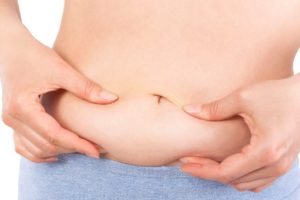Sleep is essential for repair processes to take place. This includes calming the immune system and clearing toxins from your  brain. Research has proven that poor sleep increases levels of proteins associated with Alzheimer’s disease in the brain. Hormones that control your metabolism and weight are also governed by a cycle with sleep hormones such as melatonin. [Read more…]
brain. Research has proven that poor sleep increases levels of proteins associated with Alzheimer’s disease in the brain. Hormones that control your metabolism and weight are also governed by a cycle with sleep hormones such as melatonin. [Read more…]
Even if you don’t drink, you may still have liver disease
Many of us believe that liver disease is alcohol related, but in reality, this is far from the truth. You might also think this doesn’t affect you. However, the incidence of non-alcoholic fatty liver disease is estimated to be at least 25% of the Irish population and on the rise. There are no tell-tale signs or symptoms. However, if you have some of the below risk factors, it is likely that your liver health is not optimal:
– Obesity/ overweight, particularly if carrying excess
– High fat and sugar in diet
– Consumption of one or more sugary fizzy drinks per day
– Diabetes or pre-diabetes
Zinc – the ultimate multi-tasker
 Zinc is an extremely important mineral in our diet. It is a component of one of the most abundant antioxidant compounds in the body (copper-zinc oxide dismutase) and is a co-factor in over 400 reactions in the body, including many steps involved in metabolism. It is essential for the production of sperm and for the development of mature eggs and uterine health in female fertility. Zinc is critical for the production of thyroid hormones and thus regulation of our hormones in general and prevention of miscarriage.
Zinc is an extremely important mineral in our diet. It is a component of one of the most abundant antioxidant compounds in the body (copper-zinc oxide dismutase) and is a co-factor in over 400 reactions in the body, including many steps involved in metabolism. It is essential for the production of sperm and for the development of mature eggs and uterine health in female fertility. Zinc is critical for the production of thyroid hormones and thus regulation of our hormones in general and prevention of miscarriage.
Don’t suffer through the menopause
The average age for the menopause is 51 but the peri-menopause can begin a long time before your last period. While the most widely discussed symptoms are hot flushes and night sweats, the symptoms are wide-ranging and you may be surprised to learn how many symptoms can be related to the change:
Ready to tackle your PMS?
Did you know that pre-menstrual syndrome (PMS) affects approximately 70 to 90% of women? That’s almost all of us! PMS describes any symptoms that occur after ovulation and disappear almost as soon as the period arrives. A further 10% of women with PMS may experience a very severe form called premenstrual dysphoric disorder (PMDD).
- « Previous Page
- 1
- …
- 4
- 5
- 6
- 7
- 8
- …
- 10
- Next Page »


